#Digital persecution
Explore tagged Tumblr posts
Text
#Digital persecution#LGBTQIA+#MENA region#Anti-LGBTQIA+#Queerphobia#Internet#Tech#North Africa#Western Asia#News
23 notes
·
View notes
Text

🏳️⚧️⚧️TRANS DAY OF VISIBILITY⚧️🏳️⚧️
As a transmasculine Agender human being who was made to take progesterone as a teenager causing permanent changes to my body against my will that would not have happened otherwise, and has not been allowed to start HRT for testosterone due to a congenital heart condition until I get cleared, I HAVE A CHEST I DO NOT WANT
I am still transgender
I am still transgender and other people who who cannot medically transition are still transgender
It does not matter whether you respect it or not, it does not matter even if you don't think it's true
I am the one who goes home as me every day
I will always know myself better
Androgyny is inherent to my being
Someday I'll have top surgery
But for now, this is me and this is where I'm at. ⚧️
#my art#furry art#digital art#eyestrain#sparkledog#furry#my fursona#art#transgender#tdov#tdov 2025#transmasculine#agender#demisexual#queer#lgtbqia+#trans people will always exist#the only thing that changes over time is the amount of persecution they face.
107 notes
·
View notes
Text
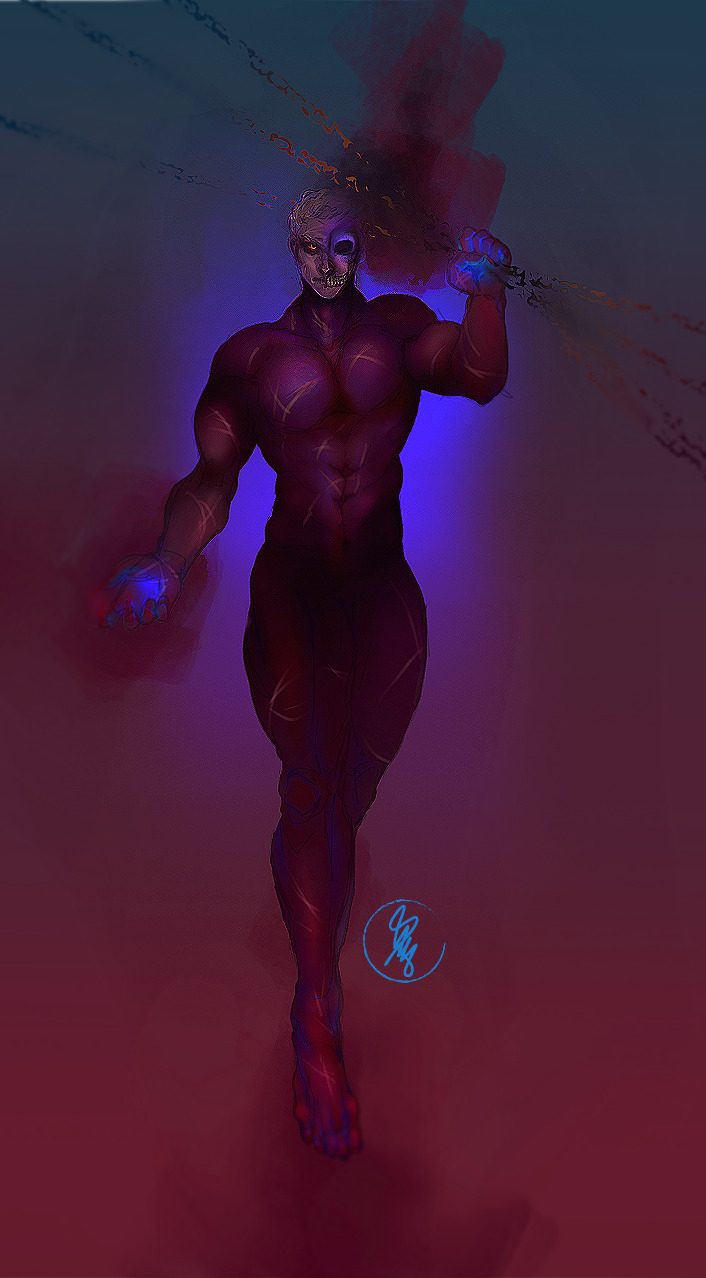
-Break the chains. Once you've fallen, there's nothing as good as feel the void phagocytising you whole-
.....
I was gonna draw something cute with Gaz and the Cap. Ok? Something cute.
But those two bastards boycotted my goddamn drawing ability.
I just can't do them.
So I draw Ghost, in some sort of "rage-mode", 'cause not being able to draw the hell I want makes me furious.
Maybe my brain took inspiration by the holy beautiful monster AU from @bluegiragi
Thank you for blessing us, now your wraith-Ghost lives in my heart forever.
.....
#call of duty#call of duty modern warfare#cod#digital art#sketchbook#digital illustration#artists on tumblr#simon ghost riley#Bluegiragi monsters AU is persecuting my dreams#Yes he looks pissed#He is#I just needed to draw and make something not-so-human is my comfort zone
35 notes
·
View notes
Text

NO H8 - The Pope Passed Away... He Was a Good Man... https://gvan42.blogspot.com/2025/04/no-h8-pope-passed-away-he-was-good-man.html
#digital illustration#digital painting#art#painting#artists on tumblr#artwork#digital art#elon musk#animation#drawing#fuck maga#maga cult#maga fafo#maga morons#trump administration#magazine#trump#donald trump#gop#doge#pope francis#popee the performer#pope heyward#popee the clown#popee the ぱフォーマー#vatican#judge#catholics#religion#persecution
3 notes
·
View notes
Text
Quite a heavy piece i made but one that is purely from the heart and one I'm sure many can relate to that feeling of being exposed, vulnerable, alone and persecuted

#digital art#infinite painter#queer artist#queer artwork#queer#lgbtq artist#lgbtq artwork#lgbt art#lgbtqia artist#lgbtqia#lgbtq community#lgbtq#gay art#gay artist#digital drawing#digital painting#my art#artwork#art#depressing shit#artistic nude#hate#fuck homophobia#fuck transphobes#personal#world view#relatable#exposed and outed#feeling alone#persecution
5 notes
·
View notes
Text
Kashmir Awareness Campaign, Poster Project - 2019

#kashmir conflict#awareness campaign#subjugation#imprisonment#curfew#poster project#collections#social justice#vital subject matter#islamophobia#hate crimes#identity#persecution#finalised art#empower#promote#safe space#community#sovereignty#pakistan#india#marketing#branding#digital art#umarali#khokhar#bristol#UK#umi3-nous design#artwork
2 notes
·
View notes
Text
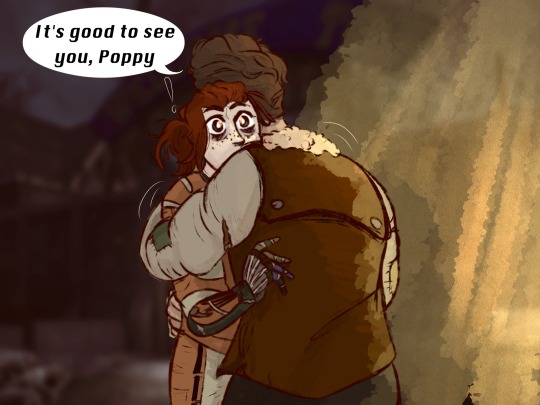
Some fallout ocs of mine and @noah-pology’s that I was thinking about.
#digital#original#fallout oc#poppy#fo norman#something about having somebody care about you for the first time in years#something about being loved by people and it not being conditional#something about being used to being so unloved and uncared for that when it finally happens you don’t know what to do#something about somebody having your back and you realizing you want to do that for others#something about a friendship that could have started so much earlier but social pressure prevented such#something about people finding each other no matter what and coming back to each other#something about meaningful platonic relationships when you’re persecuted against for disability within a shared ecosystem#something about unlearning bad values and practices to become good people around people who can embrace you for who you are
10 notes
·
View notes
Text
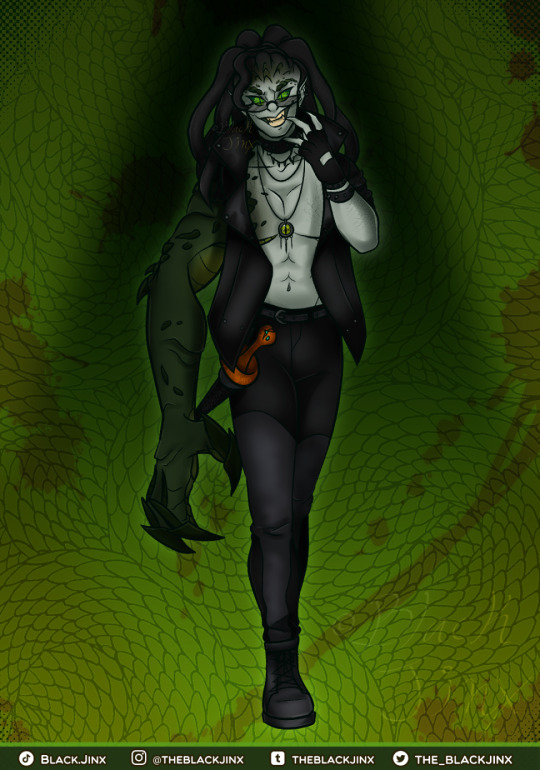
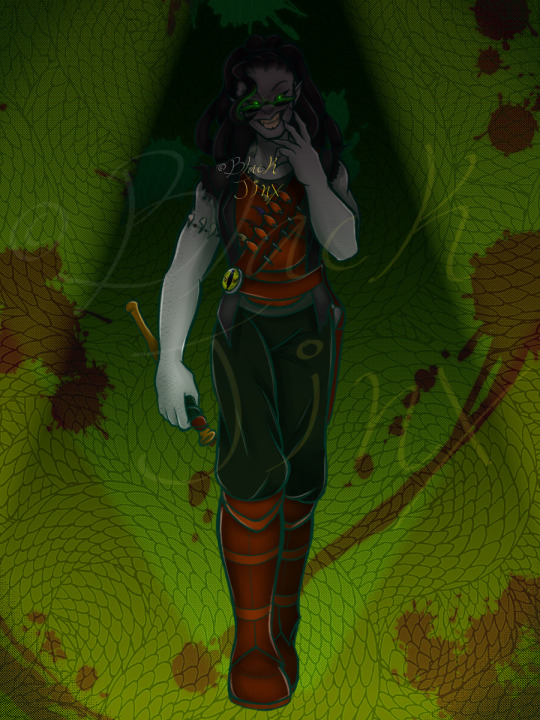
Soooo back in October I redrew The Hunter and added some, uh, unwanted upgrades. These were attained after my players literally blew his head off, stabbed him with his own sword, and buried him.
Thought it'd be cute to redraw him using the exact same pose used in his first reference
I wonder if they'll pick up on the hints I dropped...

1 note
·
View note
Text
youtube
#bible prophecy endtimes#end times#endtimes#jesus is coming#bibleprophecy#youtube#faith in jesus#follow jesus#time is running out#spread the word#signs of the end times#pestilence#birth pangs#one world economy#mark of the beast#digital currency#age of technology#number of the beast#coming of the antichrist#christian persecution#ethnic cleansing#save the persecuted Christian’s#time of jacob's trouble#days of noah#second coming of jesus christ#end of days#time to repent#stand fast in the faith#give glory to god#believe in jesus
0 notes
Text
Pride 2025
Celebrate inclusivity within the Origin System!

We’re celebrating Warframe’s incredible LGBTQIA2S+ community! We are immensely proud to support and honor our wonderfully diverse players during Pride month and throughout the year.
This year, you can celebrate Pride by picking up in-game items, watching our fantastic LGBTQI2S+ Warframe Creators and plenty more!
Rainbow Railroad
We are deeply thrilled to once again support Rainbow Railroad, a global not-for-profit organization that helps at-risk LGBTQIA2S+ people get to safety worldwide. Operating in Canada and the United States, the organization helps LGBTQIA2S+ people facing persecution based on their sexual orientation, gender identity and sex characteristics. Learn more about this incredible organization by visiting their website.
To kick off the Pride festivities, Digital Extremes has donated $20,000 CAD to Rainbow Railroad! If you are interested in directly supporting the incredible work Rainbow Railroad does to protect LGBTQIA2S+ people, be sure to check out their donation page!
Featured Creator Streams
Featured Warframe Creators will also be celebrating Pride every weekend throughout June! Tune in to these streams for 45 minutes each and receive Twitch Drops for some immaculate Decorations. Please note: linking your Warframe and Twitch accounts ahead of time is crucial to receiving these goodies!
June 6 from 3 p.m. to 5 p.m. ET - JamieVoiceOver (She/Her) Drop: Lotus Noggle Twitch: twitch.tv/JamieVoiceOver
June 8 from 1 p.m. to 3 p.m. ET - Miabyte (She/Her) Drop: Domestik Caliber Drone Twitch: twitch.tv/miabyte
June 13 from 4 p.m. to 6 p.m. ET - Brighan (They/Them) Drop: Deimos Velocipod Prex Twitch: twitch.tv/brighan
June 14 from 3 p.m. to 5 p.m. ET - SiejoUmbra (He/Him) Drop: Operator Switch Decoration Twitch: twitch.tv/SiejoUmbra
June 20 from 2 p.m. to 4 p.m. ET - VoiceQuills (She/Her) Drop: Spotted Bolarola Floof Twitch: twitch.tv/voice_quills
June 21 from 7 p.m. to 9 p.m. ET - AuntieTan (She/Her) Drop: Aoi Floof Twitch: twitch.tv/AuntieTan
June 27 from 5 p.m. to 7 p.m. ET - LadyTheLaddy (They/She) Drop: Amir Floof Twitch: twitch.tv/ladytheladdy
June 29 from 12 p.m. to 2 p.m. ET - MjikThize (She/Her) Drop: Solaris Motherwrench Decoration Twitch: twitch.tv/MjikThize

Pride In-Game
Three brand-new and utterly iridescent items are available via the in-game Market’s Community Event tab for Pride 2025, including:
The Pride Glyph IV designed by the Community Team’s TadaCharly!
The Pride Oro Decoration
The Pride Qorvex Fusion Display by Community artist Rebecca Weress
Both the Pride Glyph IV and Pride Qorvex Fusion Display are up for grabs for only 1 Credit each, and the Pride Oro Decoration for 25,000 Credits. It’s worth noting that there’s no purchase limit for the Pride Oro Decoration!
We have also brought back several Pride items from prior years, such as Pride Display I, Pride Glyph I, Pride Display III, Pride Glyph III, Pride Celebration Color Palette and Neon Pride Wings Decoration.
You will have until June 30 at 11:59 p.m. ET to scoop these new and returning items up from the in-game Market — all of which are permanent items that will stay in your inventory, so you can celebrate Pride all year long! Should you happen to miss out on the Pride Glyph IV, Pride Oro Decoration or Pride Qorvex Fusion Display, we will share a code on July 1 via Warframe’s Twitter and BlueSky pages that will remain valid until June 2026.
Pride Time Streams
Embrace inclusivity and diversity with Pride Time — streaming every Thursday at 6 p.m. ET on Warframe’s Twitch channel. Tune in to hang out with the community team, play Warframe and support our amazing LGBTQIA2S+ players.
91 notes
·
View notes
Text
WELCOME TO THE FLOCK, MY DUCKLINGS!!
Come! Come! Settle down while Mama spins you a sorry tale of Legends and their Trials...
If you'd like to support me monetarily, or commission me for Art or Writing, please follow these links to my Patreon and Kofi! Thank you for the support!!!
(EVERYTHING TO DO WITH THE LEGENDARY AU BELOW THE CUT)
So I recently have been QUITE hyperfixated on Lego; Monkie Kid, Watching the show religiously with my boyfriend, Finally coming back to Tumblr to be fed more Art (Looking at you, @kyri45 , @swagginmun , @quesocheeso and @madabapf ) And eventually venturing out into the rabid ocean that is Ao3! for wonderful fics like those made by @smilesatdawnmain , @starsfic , @cloud-somersault and of course @zephyra-in-the-house ! I have gained such an incredible amount of inspiration from the creators around me that it eventually dragged my ass out onto the metatheoretical stage that is these platforms by the scruff of my shirt- Via @bluephoenixprincess 's 'Demon Courting Tournament' post- And led me to making this post! and hopefully many more!
THIS FIC IS FOR MATURE AUDIENCES. AGES INTENDED ARE 18+. And though i cannot force anyone to not lie about their age or use the internet however you want, Know that this is your only warning that I give. Whatever content you choose to consume at whatever age is between You and Your Gods should you have any. Just don't come crying to me when you suddenly become aware just how psychologically damaging all the shit I put these monkeys through can be. There's also like a lot of smut that I refuse to be shamed for
Legendary Guide
A world where Wukong and Liu'er were separated very differently from Canon, and where Demonic and Celestial Courting is far more important to the Legend of the Monkie Kid.
Follow the Monkey Trio as they navigate a world of heartache, persecution, harassment, retribution, justice, and eventually...
Reunion.
Concept Outline/Prologue
"Legendary" -The Biggen! This is the main story, a canon-rewrite of the whole show starting from the Season 2 Special and onward!
"A Million Dreams" - A smaller side project, made for worldbuilding, a showcase of past ShadowPeach, the Brotherhood, and Mac and Wukong's last conversation
"The Journey and the Aftermath" - Another small side project, meant for more worldbuilding, a showcase of what Wukong's relationship with the Pilgrims was like, Wukong's initial Greif, and the First Tournament
"Of Obsidian and Wind, The Samadhi Son" - A Sub-Plot to the larger story of Legendary. showcasing Red Son's initial 2 week therapy sessions from the timeframe of him getting to FFM to him 'waking up' Mk in chapter 9. with a couple of therapy sessions between him and Sandy talking about future events. will update alongside Legendary.
One Shots;
The Cicada and the Infant - The Golden Cicada. One of the Buddha's first disciples, now cast out of Paradise. And cursed to live 10 pious lives in accordance with Heaven's command. Or, in short;
Cicada is Heaven's slave. Until they say he is done. He just wants to go home.. He is on his 8th Life shackled to the Jade Emperor's command. He is almost done. At the end of this life, he is tasked with "Securing the Jade Emperor's Rule." By killing Sun Wukong and Liu'Er Mihou's son.
In the Dark of the Night - Mk has some trouble with his clones, and his magic, and sleep, and training- when did he last eat again? He doesn't quite know... But he does know His Family is safe. Because he stays Awake. A certain Mr. Shadow takes issue with this.
When the Noodles are Free - A Collection of Memories Tang and Pigsy share, their First meeting, Dating, taking in Mk, Wedding Night, and some fluffy and difficult memories of raising their little Xiaotian.
Champion, Warrior, King - The New Jade Emperor calls upon a well- renowned Prophetess to tell him his future of his Reign over the Realms.
ART!!!
Main Playlist
Secondary Playlists
Worldbuilding!!!
Main Height Chart
Suitors Height Chart
FANART!!
Memes!!!!
It is so nice to finally give myself a Voice on these platforms. I can't wait to show you what I have made.

#monkie kid#legomonkiekid#lego monkie kid#lmk fanart#lmk fandom#lmk fanfiction#lmk#lmk art#lmk mk fanart#fic playlist#playlist#shadowpeach#monkie kid fanart#lmk mk#epic the musical#ao3 fanfic#ao3 writer#art#lmk spicynoodles#lmk red son#lmk macaque#lmk sun wukong#lmk freenoodles#lmk shadowpeach#lmk lady bone demon#lmk mei#lmk pigsy#lmk sandy#lmk swk#lmk tang
69 notes
·
View notes
Text
What's your life purpose?



Trigger warning : the content of these readings may be touchy. My intention is never to hurt or make anyone feel uncomfortable. Feel free to stop reading if it is too much to handle.
Group 1 - Rollerblade
Cards : Shadow, Compassion, Power, 9 of cups, Hierophant, 9 of swords
This felt very emotional and very specific but for some of you your sole purpose is to come out. Is to finally be yourself unappologetically, to get out of your shell and express your true nature. This will speak to anyone that considers themselves queer or wonders about their identity in general, whether it's about genders, sexuality, fashion, beliefs. Your purpose is to hep other people do the same. To raise awareness and compassion about being out of the norms, thinking and feeling outside the box. To empower people so that they can be themselves without feeling ashamed or fearing other people's opinion. Your purpose is to help people feel secure in their beliefs and feel fulfilled, to stop worrying about the future or whether they'll ever be able to be free. You're here to help shift paradigms around the notions of identity, norms and beliefs. Some of you may have faced public shaming in the past, whether it is in this lifetime or previous incarnations, surrounding your sexuality and/or your appearance. I was picking up specifically on World War II. There might be people amond your ancestors that were persecuted for similar reasons. I'm feeling very emotional doing this reading. If that is something you have gone through, I am sincerely sorry and I hope that you will no longer suffer the pain of being rejected for who you are. I'm getting the feeling of people being demonized because of their beliefs and wrongly accused of things they had nothing to do with. Your purpose is to help people get rid of such karma, to cleanse and purify transgenerational wounds surrounding sexuality, body image, cultural differences. Especially for women. And one of the ways you could be doing that is through art and/or entertainment. Like dancing, rollerblading, singing, painting. I asked for further information regarding hobbies or careers that you can pursue to accomplish your purpose and you got Self Love and The Explorer. So the general answer would be anything that gets you to explore and deepen your sense of self love. If I'm getting more specific, I'm thinking of modeling, yoga, group therapy, reiki, hypnose, meditation, sound healing. Since Self Love depicts a peacock, the activities have to have a connection with beauty/aesthetics/the body somehow. I'm also thinking of tantra. For some it could be related to surgery. Like helping people transition from one gender to another.
Keywords/signs/extras : In the shadows - The Rasmus, bats, ravens, crows, Pisces, Taurus, life path numbers 9/5, pride, rainbows
Group 2 - Lips
Cards : The Warrior, The Universe, Sacred Sexuality, 6 of swords, 10 of pentacles, 4 of cups
There are possible future public speakers among you. And also artists such as graphic designers, digital artists because when I started to do your reading, my drawing software just randomly opened when I didn't even click on it. So if you were hesitating about starting to draw or going digital, this is your sign to go for it. Your life purpose is to bring people together, to reunite people that were seperated. I'm specifically picking up on immigrants, war victims, orphans, people that are homeless or that have a precarious situation. Your purpose is to raise awareness about these subjects, to join an organization and fight for these people's rights. Again, the theme of sexuality is brought out here, similarly to group 1. You could be helping out people that had to flee their home in order to be safe because of their sexuality. Your purpose could be to help people free themselves of toxic environments if that is their wish. So it could be helping victims of physical abuse, domestic abuse, victims of racism/homophobia or any kind of hate crime. I sense some influencer energy coming from this group as well. In all cases, your purpose is to provide people with a safe space where they can either live freely or share their truth. So you could be creating an app to gather people facing the same issues or to put in contact people that are willing to help with people who are in need of help. You could be using your social media and your status to raise awareness about specific causes. You could be getting legally involved by filing lawsuits, by protesting, by adopting. You could be helping people with their administrative papers. There are so many ways this can be done. But I'm getting a very proactive vibe from your group. If group 1 was more about providing moral and emotional support, you are more of the kind to go to the trenches and fight the battles. So some of you could even literally fight by applying for the military. The 6 of swords can indicate travel and we also have the Universe card so this would make sense. Also you could be donating money, funding the construction of shelters for instance.
Keywords/signs/extras : Aries, social media, roses, cranes, dogs, mountains, river side, Indestructible - Disturbed, letter S, life path numbers 1/6/9, NGOs, Not today - BTS
Group 3 - Disco ball
Cards : Patience, The Magi, The Weaver, knight of pentacles, 10 of wands, The Star
Some of you could be tarot readers or use any other form of divination. If that is not your case now, you have the potential to be. You also have the potential of being a public figure. And by that I mean an important one. Kind of Beyoncé level or any other artist that you can think of that you like, no matter the field. It could be acting, it could be film making, it could be fashion design, singing, dancing, ice skating. Anything. Writing also seems really significant. Your purpose is to guide other people. To help them weave their way through illusions and obstacles. To help them move forward and lighten their load so that they can shine their light onto the world and be the best version of themselves. We also have teachers here, coaches, spiritual practitioners of any kind, healers. You bring people to life. You help them give birth to projects. It could be litteral. As in you help moms give birth to their beautiful babies. You help new souls come to life and navigate through this world. I'm picking up on One Piece and Magi references. Specifically I was thinking of Nami and Basil for One Piece. As for Magi I was mainly picking up on Aladdin. I did some research on these characters, especially Basil because I didn't know this character that much and it turns out Basil's ability uses Tarot. He's a fortune teller. When it comes to Aladdin, he's one of the most powerful magicians and his lineage is beyond great but he has no idea because he doesn't remember his past and part of his powers are tied to his memories. He is destined to save his world and become the most powerful wizard of his era but has to fight a lot of enemies to do that. So it could be that you won't reach your full potential until you've uncovered some of your past life memories / traumas. Also you may be facing a lot of challenges and opponents on your path. You may meet a lot of naysayers or a lot of people trying to distract you from your truth and your calling. So that could transpire in your work environment, in your family, in your group of friends. You might notice people hating on you for no reason. That's because your light and power disturbs them. Since there are a lot of magical mentions it could be that some of your ancestors were accused of being witches and persecuted because of that. That might be part of the past life memories you have to deal with. Or you might be living in a country / city that has a lot of legends surrounding witches/wizards (i.e. Salem in Massachussets, Rouen / Orléans/Domrémy in France for their history with Joan of Arc, Britain when it comes to Arthurian legends, New Orleans, Greece with Circe / Hecate, Russia with Baba Yaga and Rasputin, Ireland with the Morrigan, Northern Africa for Kahena).
Keywords/signs/extras : life path numbers 1/8/11/22, psychic abilities, magic, snakes, moon cycles, cranes, stars, Aquarius, Gemini, Youtiful - Stray Kids, wizards
264 notes
·
View notes
Text


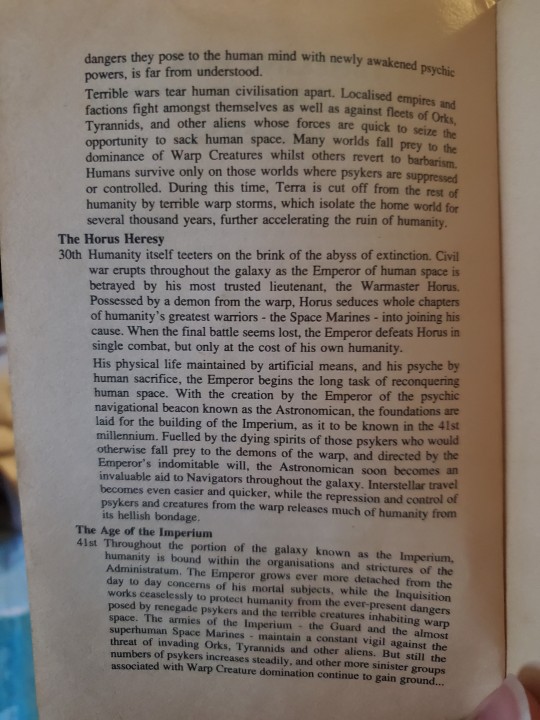
My current much-loved possession, an original 1993 copy of Space Marine. I wanted it for its lovely cover, mostly, (also physical media is supreme) even though it's seen better days. The pretty foil lettering has worn away in spots.
Inside is the timeline that was canon in 1993. You can still get this book today digitally, but I do not know if they include a timeline with it still, and if they do, if they kept it as it was for posterity or made updates.
Transcribed below!
A TIMELINE FOR THE WARHAMMER 40,000 UNIVERSE
15th Millennium - Humanity begins to colonise nearby solar systems using conventional sub-light spacecraft. At first, progress is painfully slow. Separated from Terra by up to ten generations in travel time, the new colonies have to survive mainly on local resources.
The Dark Age of Technology
20th Millennium - Discovery of warp drives accelerates the colonisation process and the early independent or corporate colonies become federated to Terra. The first alien races (including the ubiquitous Orks) are encountered. The development of the Navigator gene allows human pilots to make longer and faster 'jumps' through warp space than was previously thought possible. The great Navigator families, initially controlled by industrial and trading cartels, become a power base in their own right.
Humanity continues to explore and colonise the galaxy. Contacts are established with the Eldar and other alien races. A golden age of scientific achievement begins. Perfection of the Standard Template Construct (STC) system now permits an almost explosive expansion to the stars.
The Age of Strife
25th Millennium - Humanity reaches the far edges of the galaxy, completing the push to the stars begun over ten thousand years before. Human civilisation is now widely dispersed and divergent - with countless small colonies as well as many large, overpopulated planets. Localised wars and disputes with various alien races (especially the Orks!) continue, but pose no threat to the overall stability of human-colonised space. Then, two things happen almost simultaneously. First, humans with psychic powers begin to appear on almost every colonised world. Second, civilisation starts to disintegrate under the stress of widespread insanity, demonic possession, and internecine strife between these new 'psykers' and the rest of humanity. Countless fanatical cults and organisations spring up to persecute the psykers as witches, and/or degenerate mutants. At this time, the existence of the creatures of the warp (later known and feared as demons), and the dangers they pose to the human mind with newly awakened psychic powers, is far from understood.
Terrible wars tear human civilisation apart. Localised empires and factions fight amongst themselves as well as against fleets of Orks, Tyrannids [sic], and other aliens whose forces are quick to seize the opportunity to sack human space. Many worlds fall prey to the dominance of Warp Creatures whilst others revert to barbarism. Humans survive only on those worlds where psykers are suppressed or controlled. During this time, Terra is cut off from the rest of humanity by terrible warp storms, which isolate the home world for several thousand years, further accelerating the ruin of humanity.
The Horus Heresy
30th Millennium - Humanity itself teeters on the brink of the abyss of extinction. Civil war erupts throughout the galaxy as the Emperor of human space is betrayed by his most trusted lieutenant, the Warmaster Horus. Possessed by a demon from the warp, Horus seduces whole chapters of humanity's greatest warriors - the Space Marines - into joining his cause. When the final battle seems lost, the Emperor defeats Horus in single combat, but only at the cost of his own humanity.
His physical life maintained by artificial means, and his psyche by human sacrifice, the Emperor begins the long task of reconquering human space. With the creation by the Emperor of the psychic navigational beacon known as the Astronomican, the foundations are laid for the building of the Imperium, as it to be known in the 41st millennium. Fuelled by the dying spirits of those psykers who would otherwise fall prey to the demons of the warp, and directed by the Emperor's indomitable will, the Astronomican soon becomes an invaluable aid to Navigators throughout the galaxy. Interstellar travel becomes even easier and quicker, while the repression and control of psykers and creatures from the warp releases much of humanity from its hellish bondage.
The Age of the Imperium
41st Millennium - Throughout the portion of the galaxy known as the Imperium, humanity is bound within the organisations and strictures of the Administratum. The Emperor grows ever more detached from the day to day concerns of his mortal subjects, while the Inquisition works ceaselessly to protect humanity from the ever-present dangers posed by renegade psykers and the terrible creatures inhabiting warp space. The armies of the Imperium - the Guard and the almost superhuman Space Marines - maintain a constant vigil against the threat of invading Orks, Tyrannids [sic] and other aliens. But still the number of psykers increases steadily, and other more sinister groups associated with Warp Creature domination continue to gain ground...
#warhammer 40000#warhammer 40k#wh40k#space marine#I hope someone else also finds this mildly interesting
287 notes
·
View notes
Text
Keep It Eclectic

Eclecticism in witchcraft and magick refers to the practice of drawing from multiple traditions, spiritual paths, and systems of belief to create a personalized practice. In modern witchcraft, eclecticism plays a crucial role in making the craft more inclusive, adaptable, and meaningful to practitioners. Below are some of the key reasons why eclecticism is important in contemporary magickal practices.
Personalization and Authenticity
Modern witches often find that no single tradition fully resonates with their experiences, beliefs, or needs. Eclecticism allows individuals to:
• Craft a practice that aligns with their personal spirituality.
• Blend different traditions in a way that feels authentic and meaningful.
• Avoid dogma and rigid structures that may not fit their worldview.
For example, a practitioner may feel drawn to the herbal wisdom of traditional European witchcraft, the protective symbols of Hoodoo, and the lunar cycles of Wicca, forming a practice that uniquely reflects their path.

Accessibility and Inclusivity
Historically, many magickal traditions were closed to outsiders, limited to specific cultures, or hidden due to persecution. Today, eclectic witchcraft makes spirituality and magick more accessible by:
• Welcoming people from diverse backgrounds who may not have a direct lineage in a particular tradition.
• Allowing solitary practitioners to develop their own methods rather than requiring formal initiation.
• Encouraging respect for different cultural practices without enforcing exclusivity.
This inclusivity is especially important for witches who may not feel connected to a single cultural or religious identity but still seek a meaningful spiritual path.
Adaptability to Modern Life
Traditional magical systems were often developed in specific cultural and historical contexts. While valuable, some of their original practices may not be practical for modern practitioners. Eclecticism allows witches to:
• Integrate new knowledge, science, and technology into their practice.
• Modify rituals and spells to suit contemporary lifestyles.
• Use materials and correspondences that are more easily accessible today.
For example, a city-dwelling witch who lacks access to wild herbs might use store-bought alternatives, clever placement of sigils, or even technomancy (cyber magick) as part of their eclectic practice.

Encouraging Growth and Exploration
Eclecticism promotes a mindset of continuous learning and exploration, allowing practitioners to:
• Study multiple traditions and expand their magickal knowledge.
• Experiment with different techniques to see what works best for them.
• Develop their intuition by working with various magickal systems.
Rather than adhering to rigid rules, eclectic witches remain open to new ideas, evolving their practices over time.
Bridging the Past and the Future
Eclectic witchcraft preserves the wisdom of ancient traditions while allowing room for new interpretations. This balance ensures that witchcraft remains a living, evolving practice rather than a stagnant relic of the past.
For example, many modern witches:
• Honor ancestral traditions while adapting them to modern ethical standards.
• Combine traditional spellcraft with modern psychology and self-help techniques.
• Use contemporary tools like apps, digital grimoires, or online covens alongside traditional rituals.

Eclecticism and Cultural Sensitivity
While eclecticism encourages borrowing from different traditions, it is also important to practice cultural sensitivity and respect. Responsible eclecticism involves:
• Understanding the origins and significance of the practices one adopts.
• Avoiding cultural appropriation by acknowledging closed traditions that require initiation or ancestral lineage.
• Giving credit to cultures and sources rather than claiming practices as one’s own.
A balanced eclectic practice respects both the freedom to explore and the responsibility to honor traditions appropriately.
Strengthening Individual Empowerment
Ultimately, witchcraft is about personal empowerment. Eclecticism allows practitioners to reclaim their spiritual authority by:
• Trusting their intuition rather than relying on external religious hierarchies.
• Creating a practice that is deeply personal and uniquely effective.
• Feeling free to evolve and change as they gain new insights.
This empowerment is one of the core reasons why eclectic witchcraft has become so popular in modern times.
Eclecticism is essential to modern witchcraft because it fosters inclusivity, adaptability, and personal empowerment. By blending elements from different traditions in a thoughtful and respectful way, practitioners can create a practice that is both meaningful and effective. Instead of being confined to one path, eclectic witches embrace the idea that spirituality is fluid, ever-changing, and deeply personal.

#eclectic witch#eclectic#eclectic pagan#witch#magick#witchcraft#witchblr#witch community#diversity#mixed bag#spellwork#spellcasting#spells#spell#casting#witches#important#knowledge#esoteric#occult#interesting#spiritual journey#folk magick#chaos magick#chaos#chaos witch#eclectic wicca#lefthandpath#dark#satanic witch
66 notes
·
View notes
Text

Vía Working Class History
On this day, 7 June 1954, British mathematician and pioneering thinker in the field of artificial intelligence Alan Turing died of cyanide poisoning at the age of 41. Turing had also helped the Allies win World War II by decoding encrypted Nazi communications, and after the war helped develop some of the earliest digital computers.
In 1952, he was convicted of "gross indecency" for homosexuality and sentenced to chemical castration by the state as punishment. His death was officially ruled a suicide, in response to the persecution he had been suffering.
However, the police investigation of his death was entirely inadequate. And while they concluded he deliberately ingested cyanide from an apple, they failed to test the apple for the presence of cyanide. Alternative explanations for his death were that he could have accidentally inhaled cyanide from an experiment, or that British security services killed him to prevent state secrets being passed on to the Soviet Union, which was a common fear held about LGBT+ people whom they typically considered a security risk.
Years of campaigning against the legacy of UK state homophobia eventually resulted in Turing receiving a posthumous pardon in 2013, as well as the passing of the so-called Turing's Law, which granted posthumous pardons to nearly 50,000 other men convicted of "gross indecency" for same-sex relations.
This is one of hundreds of stories featured in our new book, Be Gay, Do Crime: Everyday Acts of Queer Resistance and Rebellion. Help get it published and get hold of a discounted copy first by backing our Kickstarter: https://www.kickstarter.com/projects/wrkclasshistory/be-gay-do-crime-a-history-of-queer-resistance?fbclid=IwY2xjawKxI2tleHRuA2FlbQIxMABicmlkETFlbENaTzN4MDJMQmduVmxpAR5kUpf1ptCoFbO19z8fZacKWdWHbJ5vSQvNE1j95fE5wT7WixnVTNGWxPyDEA_aem_FdUpjj35YTUgKCm1jH4SNA
@workingclasshistory
36 notes
·
View notes
Text
there needs to be a revival of interest in Koine Greek
i started learning attic Greek before even becoming a Christian. it was in this class that i learned the NT was written in Koine Greek; i had no idea beforehand. after finding this out, i wondered why i frequently heard of Jews and Muslims learning the language of their respective books, but ive never heard of a Christian learning Koine before then. so, let's talk Koine
disclaimer: i know that Koine knowledge varies by denomination, particularly Orthodoxy tends to have more knowledge of it. this is speaking from my experience, a new Christian in America who's Christian friends are mainly Protestant
what is Koine?
"Koine" (κοινὴ) translates to "common" in ancient Greek. it was a dialect of ancient Greek that was most often spoken, and used day to day by average people. it contrasts the more formal attic/ancient Greek that you find in most other written sources (plays, hymns, etc). ancient Greek is harder to learn than Koine, but knowing ancient Greek makes Koine much easier (this is the route i went)
why Koine?
Christianity, from the start, has always been about reaching and including everyone. Koine was the best way to do this, as at that time it was the most common language. if someone were to learn a second language, it would be Koine. ive seen it compared to English of the modern era
i mainly see Christian material in Latin; why was there a switch?
Rome legalized Christianity in the 313 CE, because it was so popular it wouldve been impossible to persecute every Christian, not to mention it was starting to become popular for members of the government as well. Rome's main language was Latin, so as popularity in Rome grew, more and more Latin translations came up and became popular
as Catholicism has still stayed close to Rome in terms of history, Latin took over as the most popular language
how can i learn Koine?
now is the tricky part. because of Rome's vast influence both in religious and secular areas, Latin is still the popular ancient language choice (at least, in America), pushing ancient Greek to the side. in fact, my college has gotten rid of all their ancient Greek classes just recently; there was another level above what i was in, but i unfortunately can't take it now. so, we have a couple options
if you're lucky enough, you'll have a college near you that has ancient Greek classes, and if you're well off enough you can afford to take them. but this is not an option for most people. so, you'll have to self learn. there are books and resources online, here are some of my recommendations:
- Athenaze 1 + 2*: these are the textbooks used in my ancient Greek classes. i think they're really good for self learning, and any questions not covered in the book can be Googled
- Perseus Digital Library: as a classics student, this website is my best friend. it has every book of the NT in Koine. you can click on each word to see what it means (though this doesn't always work unfortunately), it's gender, number, case, tense, etc. this is better used once you have some more knowledge of Koine
- Greek-English Lexicon by Liddell and Scott: the biggest and most widely used dictionary of ancient Greek words. it won't teach you grammar, but if you need to find a word it's a great resource
- Wiktionary: another website i use frequently; it's my go to for looking up the meanings of words. not only that but it has all the conjugations for words, which helps when looking them up and for figuring out how to conjugate certain words
- greekbible.com: a website like Perseus, where it has the NT in Koine, and you can click on words for more details, but this website is focused on Koine specifically and has more Biblical centered resources
- r/Koine and r/AncientGreek*: both have plenty of resources and are available for questions if you have any
- children's books translated to ancient Greek*: because of the simplicity of children's books, they make for great starter material! because of this there's a handful of books either written in or translated to ancient Greek
- theologians who have studied ancient Greek: unfortunately, i don't know many theologians in general, so i can't really recommend any. checking out r/Koine would give you a better list. while they most likely wont teach you the language itself, they can help give better context of the world the NT takes place in
- @josbiblestudy : shameless self promo, here's my new account where I'll be posting about my Bible study adventures! it'll mainly be centered on Koine, translations and what certain words mean in context of the ancient world. im also available for questions over there!
* = ancient Greek, not Koine Greek
if you have more resources, please feel free to add them!
in conclusion:
Koine is an important language to Christianity, and i hope to see it treated as such more frequently. the more interest in the language, the more resources will become available, and the more widespread it can become
#koine greek#ancient greek#Bible study#christianity#christian#christian faith#christian blog#christblr#progressive christian#progressive christianity#lgbt christian#queer christian#my posts
25 notes
·
View notes